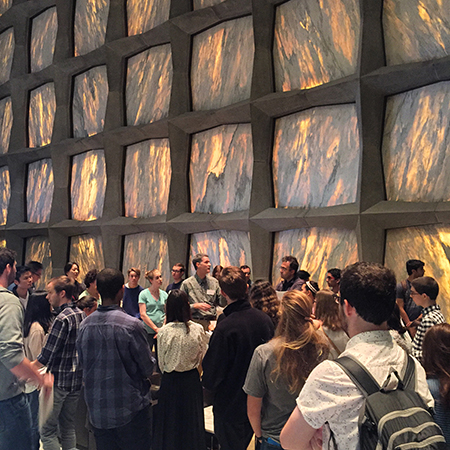
Edwin C. (E. C.) Schroeder, director of the Beinecke Rare Book and Manuscript Library and associate university librarian, will retire next year on August 31, 2021, at the conclusion of his current term and after more than 30 years of service with Yale University Library, beginning as a catalog librarian in 1989 and as director since 2011.
Under his leadership, the library made landmark acquisitions, including the Meserve-Kunhardt Collection of American photography and the Takamiya Collection of medieval manuscripts; expanded use of the library’s collections in teaching; and raised the library’s profile both locally and globally.
“The Beinecke Library has undergone a remarkable transformation during E.C.’s tenure,” said Susan Gibbons, the Stephen F. Gates ’68 University Librarian and vice provost for collections and scholarly communication. “E. C. has worked to make the library’s extraordinary holdings more widely available to all.”
More than 600 courses are now taught on site each academic year, and the library has engaged new audiences in the New Haven community as well as around the world. The Beinecke Library has become a destination to an unprecedented degree, attracting nearly 200,000 visitors in a typical year.
Barbara Rockenbach, incoming on July 1 as the Stephen F. Gates ’68 University Librarian, will work with Vice Provost Gibbons and Provost Scott Strobel to plan a search for Schroeder’s successor starting this fall.
Schroeder was appointed to his first five-year term by President Richard Levin in 2011 and reappointed in 2016 by President Peter Salovey. Other highlights of Schroeder’s tenure include:
- The comprehensive renovation of the iconic Bunshaft building at 121 Wall Street and creation of new state-of-the-art space for technical services and preservation at 344 Winchester;
- the 50th anniversary celebrations of the library’s founding;
- the establishment of the Windham Campbell Prizes;
- the enlargement and diversification of programs, events, and outreach, especially with neighbors in New Haven;
- extension of the library’s online presence, including an upgraded website and expanded digital collections; and
- vibrant exhibit programs, including 20 special exhibitions, the creation of new pop-up exhibitions, and increased collaboration with the other museums and galleries on campus.
In a message to Beinecke Library colleagues this week, Schroeder noted the vast changes he has “witnessed, participated in, and helped lead” over the course of his career at Yale. In 1989, he remembered, catalog work forms were typed on a manual typewriter and used to create both catalog cards and online records. “Today,” Schroeder said, “as we continue our work away from the library, it is remarkable how successfully our researchers and public audience can explore and study the wide-ranging collections of the library remotely.”
In his final year as director, Schroeder said he will focus on the post-COVID-19 reopening of the library, initiatives to address systemic racism, implementation of a new digital library system, and continued expansion of digital access to the collections.
Schroeder reflected: “Our current time powerfully underscores the importance of pursuing our mission, inscribed at the entrance to the library: ‘to serve as a source of learning and as an inspiration to all who enter.’”